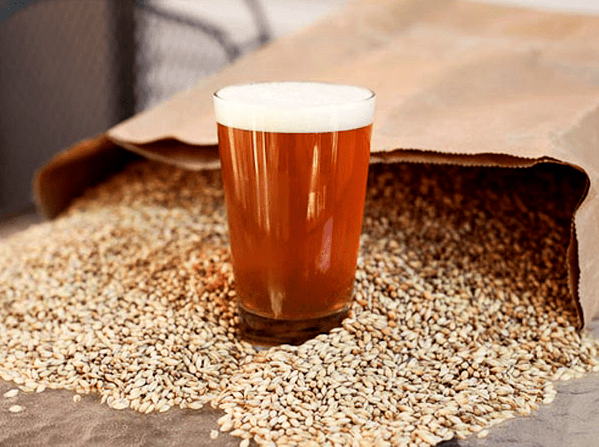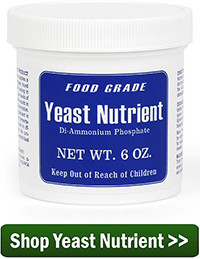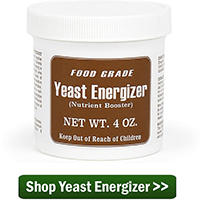 If you’ve ever thought about using yeast nutrient in your beers but haven’t, then you may want to reconsider. There is little-to-no downfall in doing so and the additional costs are minuscule.
If you’ve ever thought about using yeast nutrient in your beers but haven’t, then you may want to reconsider. There is little-to-no downfall in doing so and the additional costs are minuscule.
Yeast is the magical microorganism responsible for turning sugar into alcohol. Without yeast, we would have no beer, wine, or cider. And in order to do their jobs well, those billions of yeast cells have certain requirements. They’re not about to do all the hard work of fermenting your beer without a little something in return!
Though yeast are happy to eat up a bunch of sugar in just about any situation, there are some conditions that affect just how well they thrive. Temperature, for one, is important. Yeast can be killed when either too cold or too hot. When it comes to beer yeast, they tend to do best within a relatively narrow temperature range. Luckily for homebrewers, the ideal temperature for ale yeast is right around room temperature.
Another important factor in yeast performance is yeast nutrition. Since malt provides most of the nutrients yeast needs to ferment a batch of beer, yeast nutrition is usually covered when homebrewers progress beyond the basics.
In order to thrive, yeast need not just sugar, but also elements like nitrogen, fatty acids and sterols, amino acids, and vitamins. When yeast lack these ingredients, such as when brewing with large amount of adjunct grains and sugar, we begin to think about using yeast nutrients in the beer. Personally, I’ve found that yeast nutrient is a worthwhile addition to every batch of beer I brew.
Types of Yeast Nutrient and How to Use Them
- Brewer’s Yeast Nutrient – One of the chief contributors to a healthy fermentation is nitrogen. It is most often lacking when brewing a beer with a high proportion (more than 10%) of sugar or rice. Nitrogen-based yeast nutrients are usually added to a beer before fermentation, though they may also be helpful in resolving stuck fermentations. Typical dosage for beer is 1 tsp. per three gallons.
- Yeast Energizer – Yeast energizer is specifically designed for enhancing and speeding up fermentation. It has a slightly different mix of ingredients than yeast nutrient, providing what yeast needs a little later in the fermentation process. So, it is often added part way through fermentation and is especially useful in a stuck fermentation situation. Typical dosage is 1/2 tsp. per gallon.
 Properly using yeast nutrients when brewing beer will frequently reduce fermentation time and produce cleaner tasting brews. Many brewers are in the habit of adding yeast nutrient to every batch.
Properly using yeast nutrients when brewing beer will frequently reduce fermentation time and produce cleaner tasting brews. Many brewers are in the habit of adding yeast nutrient to every batch.
Are you in a habit of using yeast nutrient in your beers? Why or why not?
—–
David Ackley is a writer, brewer, and craft beer marketing consultant. He holds a General Certificate in Brewing from the Institute of Brewing and Distilling and is founder of the Local Beer Blog.
